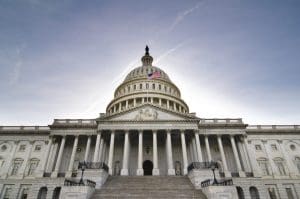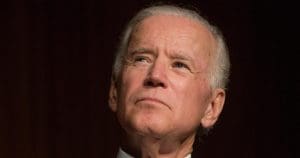The economic crisis caused by the coronavirus pandemic poses a triple challenge for tax policy in the United States. Lawmakers are tasked with crafting a policy response that will accelerate the economic recovery, reduce the mounting deficit, and protect the most vulnerable.
To assist lawmakers in navigating the challenge, and to help the American public understand the tax changes being proposed, the Tax Foundation’s Center for Federal Tax Policy modeled how 70 potential changes to the tax code would affect the U.S. economy, distribution of the tax burden, and federal revenue.
In tax policy there is an ever-present trade-off among how much revenue a tax will raise, who bears the burden of a tax, and what impact a tax will have on economic growth. Armed with the information in our new book, Options for Reforming America’s Tax Code 2.0, policymakers can debate the relative merits and trade-offs of each option to improve the tax code in a post-pandemic world.

Maryland Lawmakers Look to Alcohol for New Revenue
While there are legitimate reasons for increasing and levying excise taxes, legislatures should proceed with caution in the aftermath of the pandemic. Importantly, revenue from increased excise taxes should generally be allocated to spending related to the negative externalities as that revenue is too volatile and unreliable to rely on for long-term budget priorities.
3 min read
Republican Study Committee Workforce Plan Rethinks Education, Labor, and Welfare Tax Policy
The House Republican Study Committee released a proposal, “Reclaiming the American Dream,” which includes 118 policy recommendations to address education, labor, and welfare policy with the aim of expanding opportunity, liberty, and free enterprise for all Americans.
7 min read
How Should Wealth and Work Be Treated in the Tax Code?
Joe Biden recently released a piece reviewing his tax proposals, contrasting them with President Donald Trump’s tax ideas. A major theme within this piece can be summarized in the title: “A Tale of Two Tax Policies: Trump Rewards Wealth, Biden Rewards Work.”
4 min read
More Countries Target the Property Tax
A recent OECD report reveals a tendency towards higher property taxes, often in the form of base broadening, tax rate increases, or both.
5 min read
An Excise State of Mind
Even during a crisis when budgets are squeezed, policymakers should put their efforts into serious reforms of existing income and consumption taxes rather than leaving good tax policy behind for an excise state of mind.
6 min read
New York Stock Exchange Signals Willingness to Relocate Servers to Avoid Proposed New Jersey Financial Transaction Tax
As the NYSE prepares to conduct a test of their server capacity elsewhere, New Jersey lawmakers may be forced to rethink the viability of their financial transaction tax proposal.
4 min read
Senate Republican Coronavirus Package Is Undermined by Complexity & Impermanence
What does the Senate Republican coronavirus package do? Are there better ways of providing short-run relief without making the tax code more complicated?
6 min read
Biden’s Plan to Address Offshoring Comes with Contradictions
If the goal of the Biden campaign is to bring new investment and jobs to the U.S., it is doubtful that these new tax rules will contribute to that goal.
4 min read

Proposals to Lure Foreigners to Greece Highlight Need to Reform Property Taxes
A more efficient property tax system in Greece is a better objective than just focusing on incentives for foreigners to change their tax residence.
4 min read